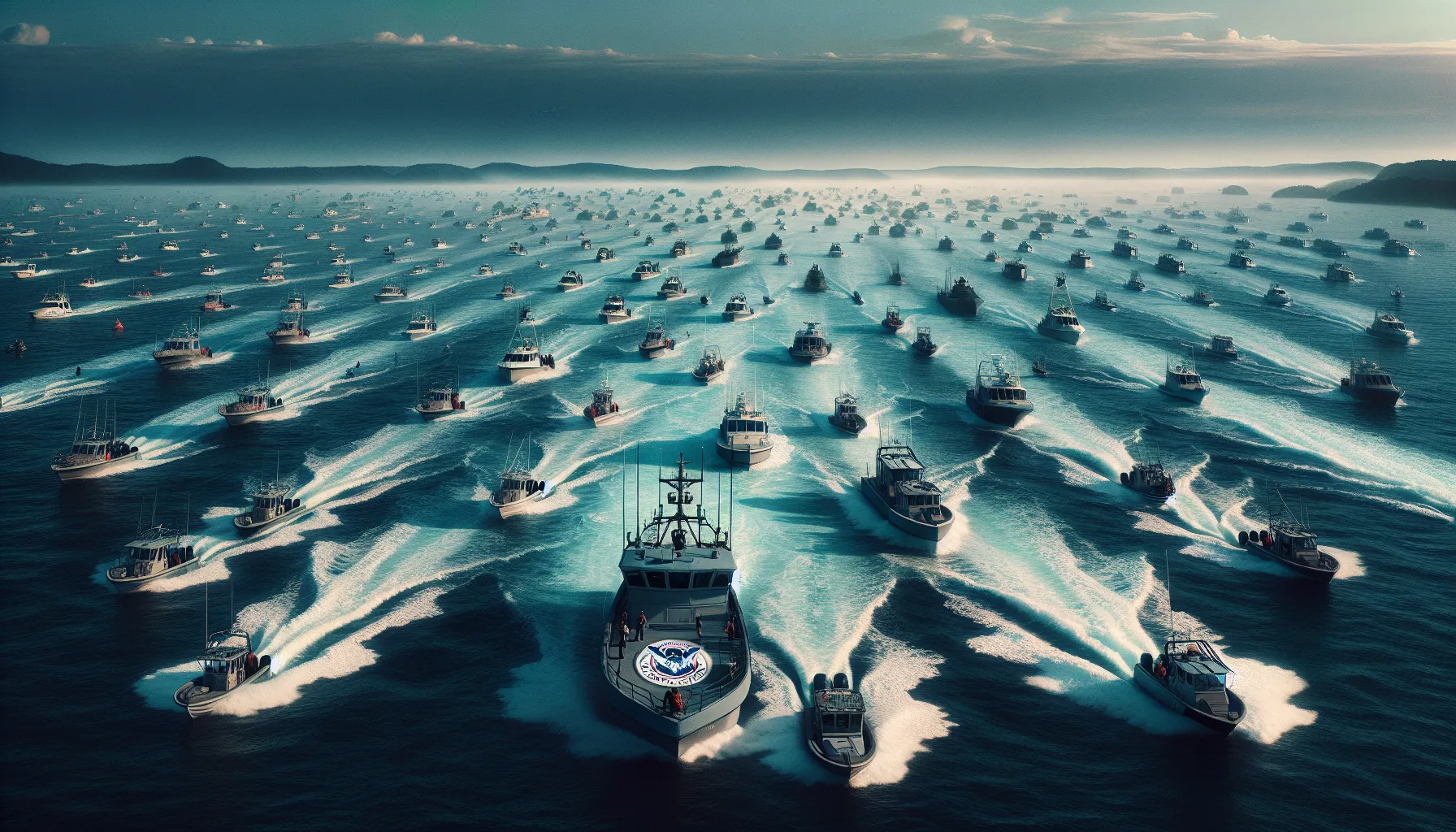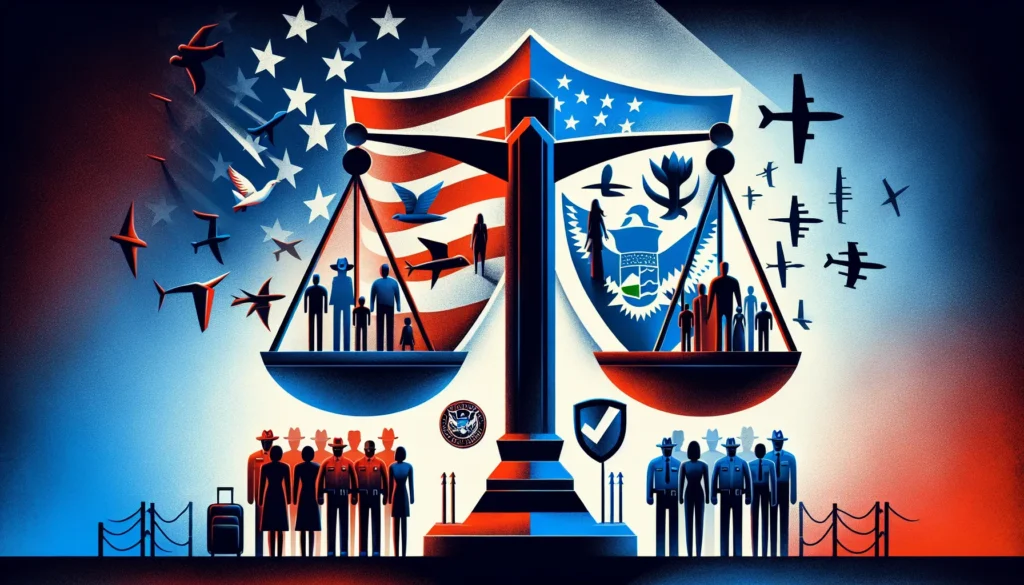Understanding which of these actions is a homeland security violation is crucial for anyone engaging in boating activities, especially in areas like the Intracoastal Waterway. Homeland security restrictions are designed to ensure safe and secure waters for all, making compliance not just a matter of regulation but a key aspect of national security. Identifying what constitutes a homeland security violation can safeguard individuals from unwittingly endangering themselves or others, and underscores the importance of adhering to legal guidelines while navigating waters.
Moreover, cooperation with local authorities and awareness of weather emergencies are pivotal in maintaining safety and security. By familiarizing themselves with the details of homeland security violations, boaters can contribute to the collective effort to protect the nation’s waterways. This proactive approach promotes a culture of compliance and vigilance, crucial in preventing incidents that could compromise homeland security.
Understanding Homeland Security Restrictions on Boating
Understanding Homeland Security Restrictions on Boating involves adherence to specific guidelines aimed at enhancing maritime border security while ensuring the smooth flow of legitimate trade and travel. These restrictions are crucial for maintaining safety and security across navigable waterways, including the Great Lakes and inland waterways under federal jurisdiction. The U.S. Coast Guard plays a pivotal role in monitoring these activities, addressing boating safety, and responding to various maritime incidents.
Key Restrictions Include:
- Proximity to U.S. Naval Vessels:
- Do not approach within 100 yards.
- Operate at minimum speed within 500 yards.
- Security Zones:
- Observe and avoid areas around the military, cruise line, or petroleum facilities.
- Stay clear of commercial port operation areas.
- Restricted Areas:
- Avoid areas near dams, power plants, and other specified restricted zones.
- Do not stop or anchor beneath bridges or in channels.
Legal Framework:
- Laws and Regulations: Enacted by Congress and implemented by the Department of Homeland Security and the U.S. Coast Guard.
- United States Code (USC): Consolidates general and permanent laws, organized by subject matter.
- Code of Federal Regulations (CFR): Codifies rules published in the Federal Register by executive departments and agencies.
Violators of these restrictions can expect a swift and severe response, underscoring the importance of compliance for the safety and security of all maritime activities.
Common Violations and Their Consequences
Violators of Homeland Security restrictions on boating activities face serious consequences, emphasizing the critical nature of compliance. Below are the key violations and their respective penalties:
- Naval Vessel Protection Zones Violations:
- Unauthorized operation around these zones is a criminal offense.
- Penalties: Up to six years in prison and/or a fine of up to $250,000.
- The U.S. Navy and Coast Guard may use deadly force for protection.
- Boating Under the Influence (BUI):
- Comparable to drunk driving, BUI significantly increases the risk of accidents.
- Penalties: Can include large fines, suspension or revocation of boating privileges, and jail terms. In severe cases, the voyage may be terminated, the boat impounded, and the operator arrested.
- Approaching Commercial Vessels:
- An unauthorized approach may lead to immediate boarding by authorities.
These stringent measures underscore the importance of adhering to homeland security regulations to ensure the safety and security of all maritime activities.
Reporting Suspicious Activities
In the realm of boating and maritime activities, vigilance against suspicious activities is a shared responsibility. Here are the steps and guidelines for reporting such activities effectively:
- Initial Observations: Keep a keen eye out for unusual behavior or activities. This includes:
- Surveillance or unusual interest in operational details
- Attempts to gain information about security processes
- Unusual boating patterns or avoidance of contact
- How to Report:
- Local Authorities: Always the first point of contact for immediate threats or activities.
- U.S. Coast Guard (USCG): For maritime-specific incidents.
- Port or Marina Security: Especially if the suspicious activity is localized around these areas.
- National Response Center: For broader threats, reachable at 877-24WATCH.
- Cybersecurity and Infrastructure Security Agency (CISA): For cyber or physical security incidents, contact [email protected].
- Chemical Facility Anti-Terrorism Standards (CFATS) Tip Line: For violations related to chemical security, call 877-394-4347 or email [email protected].
- U.S. Immigration and Customs Enforcement’s (ICE) Homeland Security Investigations (HSI): For crimes, contact 866-347-2423 or submit tips online at www.ICE.gov/tips.
- FBI Tips: For terror activity, submit an online report or contact local FBI Field Offices.
- Reporting Guidelines:
- Use the CYMBALS Method: Describe people, boats, or vehicles focusing on Color, Year, Make, Body, and License.
- Avoid Bias: Never use race or religion as indicators of suspicious activity.
- Include the 5 Ws and an H: Who, What, Where, When, Why, and How to provide a comprehensive report.
- Emergency Situations: In case of immediate danger, call 9-1-1.
Remember, “If you see something, say something.” Your vigilance and prompt reporting can play a crucial role in maintaining the safety and security of maritime activities.
Navigating Safely and Legally
Navigating safely and legally requires strict adherence to Homeland Security rules and regulations to avoid severe consequences. The U.S. Coast Guard plays a pivotal role in ensuring maritime safety, addressing issues ranging from boating safety to pollution. Compliance with these regulations is not optional but a mandatory aspect of responsible boating. Below are the key requirements for recreational vessels:
- Navigation and Visibility:
- Display navigation lights between sunset and sunrise and during restricted visibility.
- Environmental Protection:
- Follow Annex V of MARPOL 73/78, prohibiting disposal of refuse into U.S. waters.
- Vessel Documentation:
- Register undocumented vessels with propulsion machinery in the state of principal use.
- Display the issued Certificate of Number on the vessel.
Safety Equipment Requirements:
- Life Jackets: Must be U.S. Coast Guard-approved, suitable for the intended user, and properly stowed.
- Visual Distress Signals (VDS): Required to be U.S. Coast Guard-approved, in serviceable condition, and readily accessible.
- Fire Extinguishers: Necessary to be U.S. Coast Guard-approved, in serviceable condition, and readily accessible.
- Other Essential Equipment:
- Ensure proper ventilation to prevent the accumulation of explosive gases.
- Equip vessels with devices to prevent backfire flames.
- Keep U.S. Coast Guard-approved sound-producing devices in working order and readily accessible.
Regulatory Compliance:
- Adhere to federal and state pollution regulations.
- In specific states like California, a boater card is required for operating motorized vessels, and vessels must display a current “Mussel Fee Sticker” when operating in fresh water.
Complying with these guidelines ensures not only the safety and security of maritime activities but also the protection of the environment. Proper safety equipment is not just smart; it’s mandated by law, with requirements varying by boat type and location.
Conclusion
Throughout this exploration of homeland security violations in boating activities, we have underscored the critical importance of adhering to established regulations and guidelines. Through a comprehensive deep dive into the restrictions, legal frameworks, and potential consequences of non-compliance, the significance of vigilant and responsible boating practices has been made clear. Preserving the safety and security of our waterways is a collective responsibility, necessitating awareness and cooperation from all individuals involved in maritime activities.
As we navigate forward, it becomes imperative for the boating community to continuously educate themselves on homeland security restrictions and to report any suspicious activities promptly. The outlined consequences of violations and the steps for reporting serve as a reminder of the vital role each individual plays in safeguarding maritime environments against potential threats. Ultimately, fostering a culture of compliance and vigilance not only ensures our safety but also fortifies the security of our nation’s waterways for future generations.
FAQs
What boating activity is prohibited due to homeland security restrictions?
Anchoring a boat beneath a bridge or in a channel is an activity that violates homeland security restrictions. This action is seen as a security risk and is prohibited by the U.S. Coast Guard.
How can I comply with Homeland Security regulations while boating?
To comply with homeland security measures, you should steer clear of all security zones, avoid areas near commercial port operations—particularly those involving military, cruise line, or petroleum facilities—and stay away from other restricted areas like those near dams and power plants. Additionally, do not anchor or stop your boat beneath bridges or in channels.
As a recreational boater, what should I avoid to adhere to homeland security guidelines?
Recreational boaters should avoid commercial port areas, especially those associated with military operations, cruise lines, or petroleum facilities. It’s also important to keep clear of restricted zones near dams and power plants and refrain from stopping or mooring beneath bridges or in channels.
What is the recommended action for boat operators to maintain safety on national waterways?
Boat operators are encouraged to contribute to the safety of the nation’s waterways by reporting any suspicious activities to the appropriate authorities, in line with the Department of Homeland Security’s recommendations.

